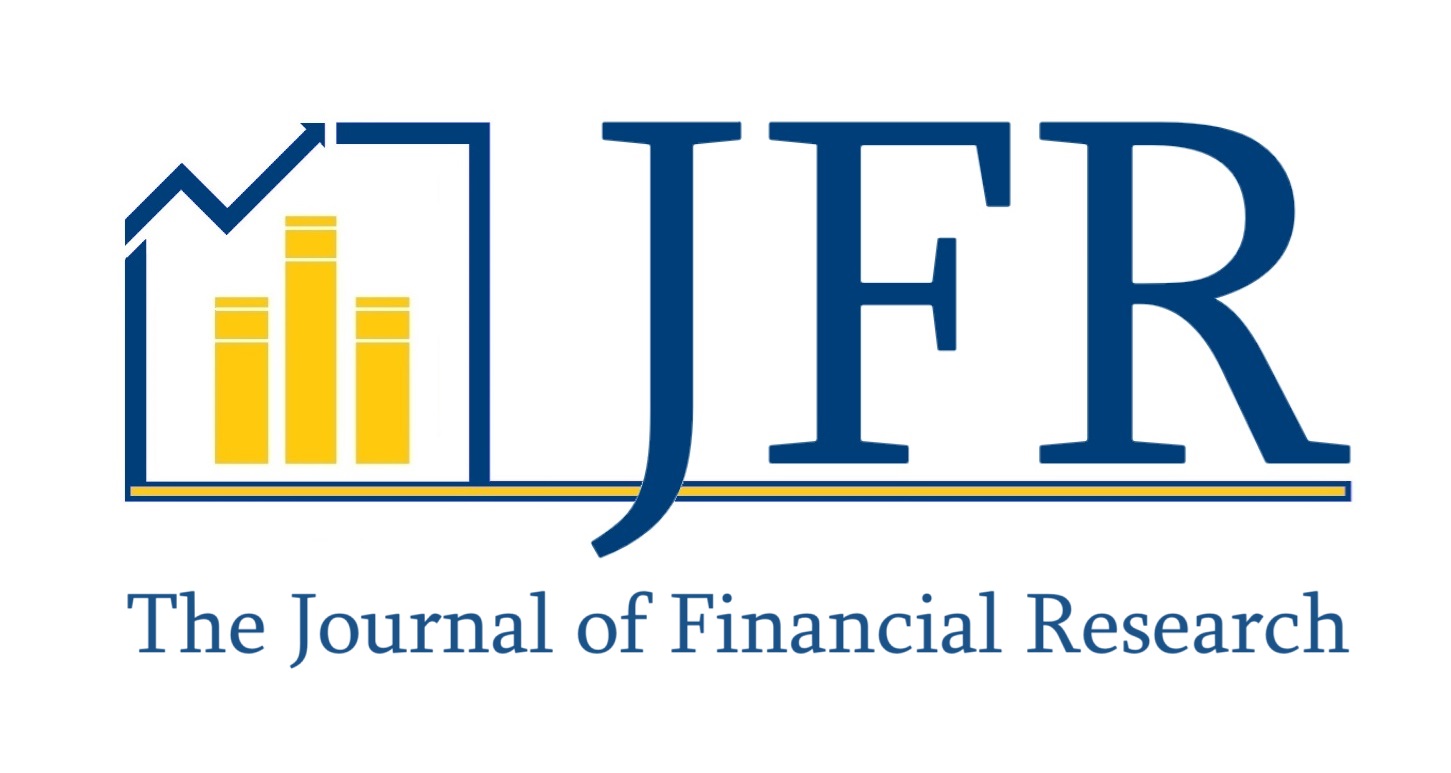In a November 2024 roundtable discussion at the Southern Finance Association’s annual meeting in Palm Beach Gardens, Florida, the current co-editors of the Journal of Financial Research (JFR) joined other academic journal editors and a room full of scholars to share their expertise and opinions, and to answer questions on several areas of academic publishing. From referee reports and difficult reviewers to the rise of AI-written papers, no question was turned away.
Referee Reports
One of the first questions posed by an audience of conference attendees, many of whom were current Ph. D students hoping to secure their first publication, was if journals share referee reports. Professor Laura Starks, a previous editor for the Review of Financial Studies (RFS), was quick to debunk the myth saying she had never heard of journals sharing documents.
“If you send a paper to one journal, get rejected, and then send to another journal without addressing the comments and you get the same referee, you may get the same report,” she explained. “But I’ve never seen [editors] share their reports to other journals.”
While journals may occasionally request the same reviewers for the same papers, all editors on the panel agreed there’s no coordinated sharing of reports across journals.
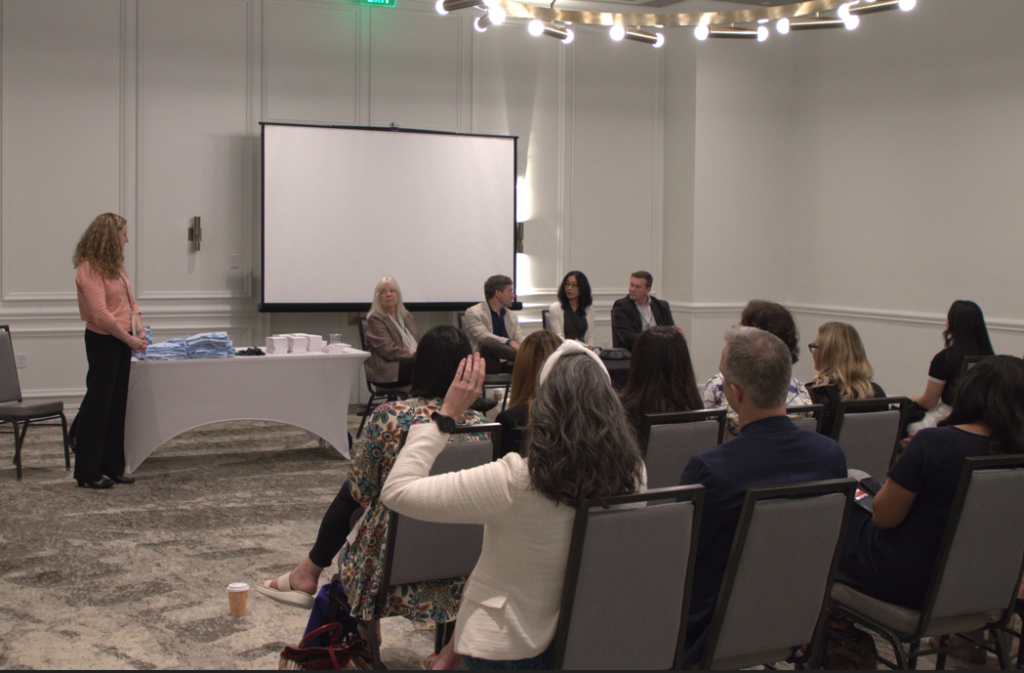
Professor Brandon Cline, current co-editor of the JFR, emphasized that editors do appreciate when authors provide previous referee reports voluntarily because it allows editors to better assess what changes have been made in response to feedback.
“It’s helpful when authors are transparent about what’s been addressed and corrected from prior reviews,” he said.
Editors find reviewers a few ways: by asking someone they already know who is an expert on the subject, by choosing authors of cited papers, or by conducting their own search of the literature through Google Scholar. Professor Adam Yore, current co-editor of the JFR, noted that each method is likely to pull a similar set of reviewers.
“You should at least try to address the major rejectable offenses. Usually, if a referee was an expert once, they’re going to be an expert again,” Yore said. “If you don’t address major issues that were pointed out in previous reviews, you’re likely to get the same report again.”
“If the authors don’t care enough about their work to address reviewer comments and then submit the same exact paper somewhere else, then it’s not worthy of being published,” Cline said. “You just want to avoid that reputational issue.”
The Value of Cover Letters
The role of a cover letter was another debated topic. Some editors said they find them valuable, especially when the paper addresses complex or niche topics.
“A good cover letter allows you to explain the paper in plain language. Sometimes in our work things can get technical, and if I’m not an expert in that field, a cover letter can be very helpful,” Yore said. He also suggested that a cover letter could help contextualize the paper’s history. Including whether it’s been rejected at other journals or if it has gained media attention.
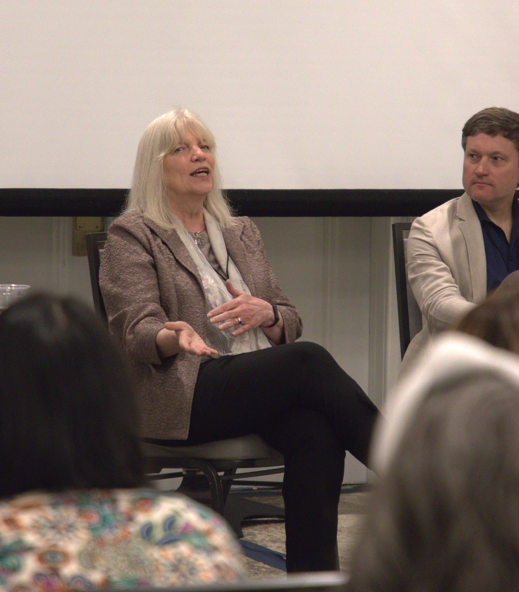
Starks noted that editors at larger journals often don’t spend a lot of time on cover letters due to the large volume of submissions but suggested that authors who think there may be a conflict with a potential reviewer, should let the editor know.
“If you think there’s a conflict or there is someone you don’t want to be a referee because of a conflict, then I would write a cover letter,” she said. “The Review of Financial Studies has someone that helps the editors gives suggestions for referees. Those people read the cover letters, but I’m not sure in general if most editors read them.”
Cline said cover letters are a nice gesture but they’re not something that influences his decision. He said using them to be upfront about a paper’s flaws or previous rejections can be helpful for an editor to know.
“Transparency is appreciated, even if it introduces a slight bias,” he said.
First Impressions Matter
All editors on the panel agreed one of their biggest frustrations is poorly formatted submissions.
“If a paper doesn’t look clean or professional, it’s hard to take it seriously,” said Cline. “Even if it’s not formatted in the journal’s style yet, it should at least resemble a proper academic article.”
Yore echoed the sentiment, adding, “I tell my students that we can’t observe the econometrics or see your data work, but we can see how professionally you put your paper together. It matters a ton. “
Tables that are poorly formatted, tables that are not self-contained, lacking a legend or appendix, and grammatical errors are all things editors said send an immediate negative impression. A clean and professional submission signals the author cares about the quality of their work, and it can positively influence the editor’s initial view on the paper.
“Show [us] that you care,” Cline said
“Especially now that there are tools out there to improve your writing,” Yore added. “I don’t care if it’s simple spell check, Grammarly, or something further along that spectrum, make sure it’s been edited. Or, better yet, have someone else, like a colleague or copyeditor, look over your work. It will go a long way.”
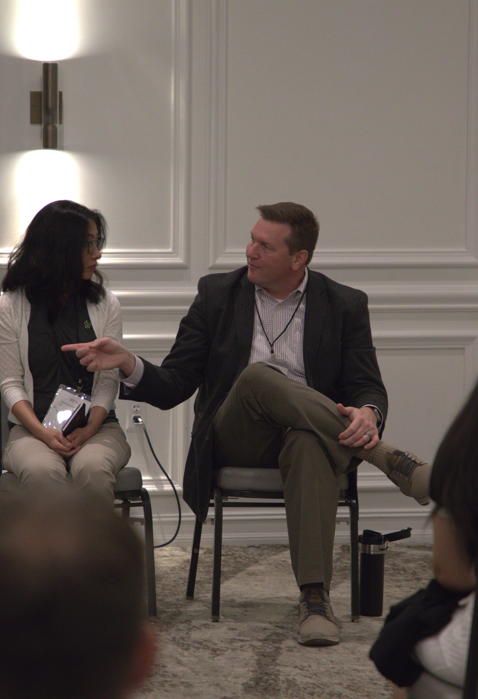
The challenges and responsibilities of refereeing
The process of being a referee is fraught with challenges. Editors are always looking for timely, high-quality reviews. But what happens if you’re asked to be a reviewer for a paper you don’t understand or simply don’t have the time for? Can you say, ‘no?’ Editors say, ‘yes,’ but request you say it quickly.
“If you don’t have the time to review a paper, say ‘no’ early. It’s much better for everyone involved,” said Yore.
He explained all journals are trying to offer submitting authors a faster review process. The JFR currently has an approximate 35-day median turnaround time from submission to decision. Getting that time down as much as possible was the primary focus for Professors Cline, Yore, and Melissa Woodley when they took over editorship of the JFR in January 2024.
“By the time a paper is submitted, the days really rack up pretty quickly. It first goes to our managing editor [Woodley] and may take her a few days to get to it, then it’s then assigned to a topic editor like myself and may take me a few days to get to it. I’ll then assign it to a reviewer and it takes them a few days,” explained Cline. “So, each of those processes can take several days. And before you know it, you’re up to a month.”
For this reason, the JFR compensates referees for fast and fair reviews. If they receive a high-quality review within 30 days, as a token of appreciation or their service to the journal they’ll pay out $100 to the referee.
“We put [referee] invites out sequentially, so if you’re waiting seven to eight days to reply, then that just really slows down the turnaround time,” Yore said. “If I don’t hear from someone in three days, I try to get another one out. If you just tell us quickly, ‘no,’ then that’s way better for everyone involved.”
Cline agreed, suggesting that instead of just saying, ‘no,’ invited referees are encouraged to instead suggest an alternate reviewer.
“When you say ‘no’ to a request, always suggest another qualified reviewer. That’s the best way to help the editor.”
Professor Tina Yang, co-editor of the Financial Review (FR) took the opportunity to thank everyone who accepts referee requests, especially at FR.
“I really appreciate our conscientious our reviewers have been because it’s so hard to find good reviewers,” she said.
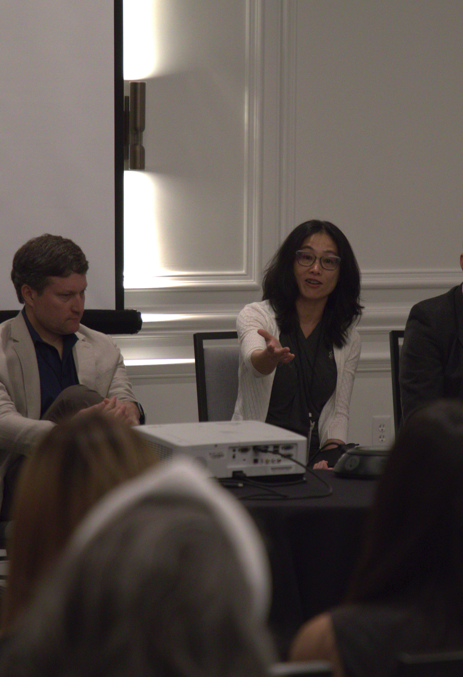
The Growing Influence of Artificial Intelligence (AI)
As AI tools become more prevalent, the question of its role in academic publishing looms large for the scholarly profession.
“Fundamentally, that’s going to be a challenge for all of us moving forward,” said Yore. “The potential for abuse and not doing good science is significant. As AI becomes more sophisticated, it will become increasingly difficult to assess whether a submission is genuine.”
Cline expressed similar concerns about the potential negative impact of AI on academic writing.
“You should be able to articulate what you’re doing. AI cannot help you get better and evolve your communication skills,” Cline said.
Cline explained that Ph. D students and assistant professors sometimes take a long time to develop their writing and the ability to effectively communicate things in a clear way. He stressed the importance of always working towards that goal because it’s going to be revealed quickly in your career.
“If AI is writing your paper, then you won’t be able to articulate your arguments when giving a presentation, which means you’re not going to do good on the job market,” Cline said. “AI cannot help you get better and improve your communication skills. Forcing yourself to write and rewrite the old school way and not relying on that crutch will help develop you as an effective communicator and will help build those writing skills.”
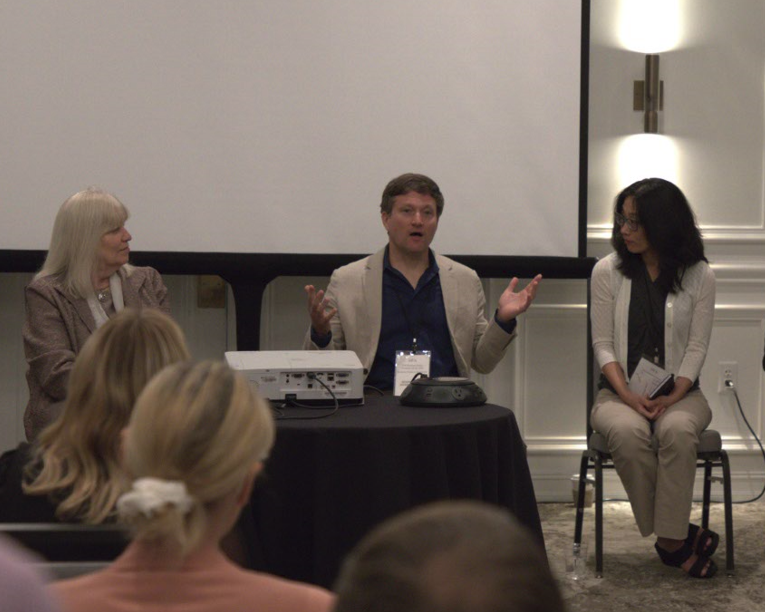
When asked if they would reject a paper written by AI, Yore posed a thought-provoking question: “Is the author crediting AI as the author?” He acknowledged the difficulty of addressing, let alone uncovering, the issue and suggested the academic community should start developing guidelines and standards.
Starks noted that the Journal of Financial Economics (JFE) requires authors to sign a declaration stating they did not use AI in writing their paper. While the editors on the panel had not yet encountered AI-generated reviews or papers, they acknowledged the importance of being vigilant about AI’s role in academic writing and reviewing.
One person in attendance recalled recently receiving a referee report completely written by AI. They explained their paper had been rejected, and despite reaching out to the editor of the journal, they said their request for another review was declined. They questioned the editors on the panel about their expectations regarding the use of AI in journal publication and review.
Yore sympathized with the incident, explaining that most junior faculty members are reluctant to question more prominent scholars.
“If a junior faculty member was just given a terrible AI written review from an A journal, they’re probably not going to charge up that hill and write the editor. They would just let it go and move on to the next journal,” Yore said. “But as an editor, I would like to know.”
Starks agreed. She said even top journal editors want to know if a reviewer is not being diligent and recalled her own regret of not reaching out after a poor review.
“I sent my job market paper to a journal, and it was obvious the referee didn’t read past page nine because I had done what they said I should do,” she said. “I was too scared to reach out to the editor and I’ve always regretted not having written the editor.”
Cline said reputation should always be top of mind.
“We keep statistics of good reviewers, okay reviewers, and terrible reviewers. And if you’re a terrible reviewer, you’re not going to be asked often to review papers, but your reputation may be tarnished,” he said. “I always tell my Ph. D students, if you’re going to do a review, do a great job. You’re constantly signaling that you care about this profession, you care.”
Finding the Right Journal Fit
The question of whether a paper that contradicts recently published work is a good fit for a journal sparked a debate. Yore argued that such papers could generate valuable discussions, which is the goal of the profession.
“If your paper contradicts or challenges recent findings, that’s great!” he said. “I think that’s what we want to do as scholars, right? Science thrives on debate.”
Yore compared the review process to that of a court room where the submitting author is the prosecutor trying to change the status quo while the defense is upholding the prior.
While challenging recent research could potentially bring a contentious review, the careful oversight of editors and an appeals process are already mechanisms in place to address disagreements and ensure fairness. Sometimes editors said they’ll even request another reviewer for disagreements or call in an associate editor to be a neutral party to break ties among reviewers.
Appropriate Title and Research Topics
One of the final questions posed to the panel was their view trending research: “Is there an area of research of that you would suggest not even touching because it’s overdone?”
Cline emphasized the need for papers to offer something novel, especially when dealing with hot topics like Environmental, social, and governance (ESG) or financial technology, (FinTech.)
“I get frustrated with ‘me-too’ papers that just add a little contribution to an already overdone topic,” he said. “We get so many of the same types of papers and then start running into these issues of only having a few experts and unfortunately, it’s hard not to go back to the same reviewers.”
Ultimately, the editors agreed that journals should strive for diversity in their articles, reflecting various areas of finance rather than focusing solely on trending topics, especially since most journals are generalist journals representing an entire profession, instead of just one area.

